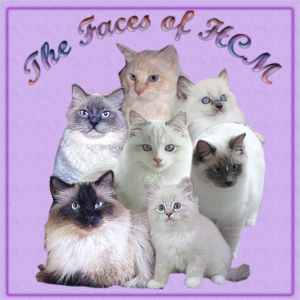 |
| Navigation |
HomeCurrent Fundraisers Donation Information Contributors 2008 Auction 2007 Contributors 2007 Contributors 2005-2006About Ragdoll ResearchUpdatesFaces of HCM Dr. Meurs Contact Info Links |

www.RagdollResearch.org
| About Ragdoll Research |
|
|

